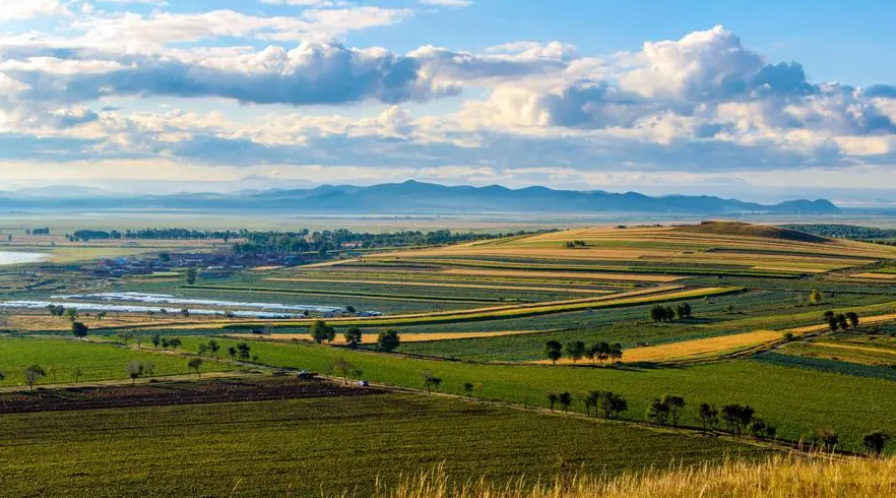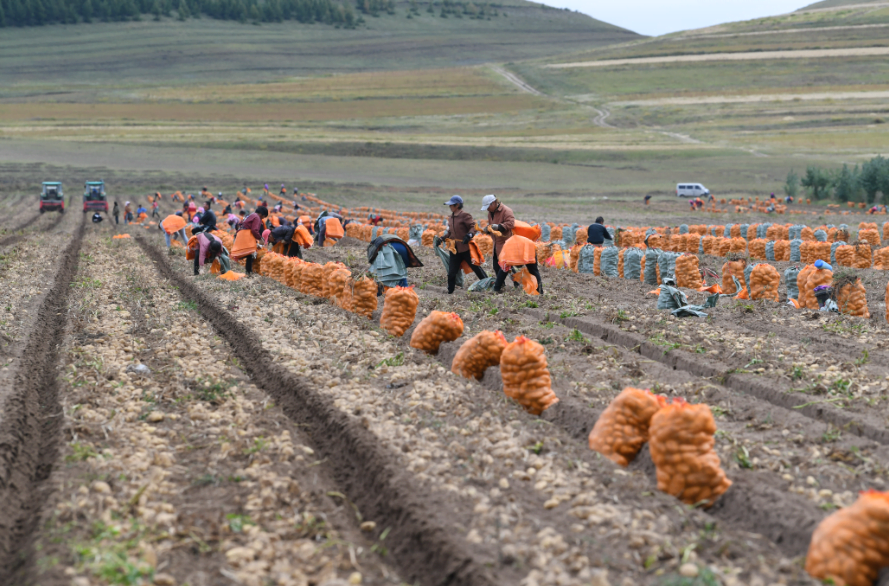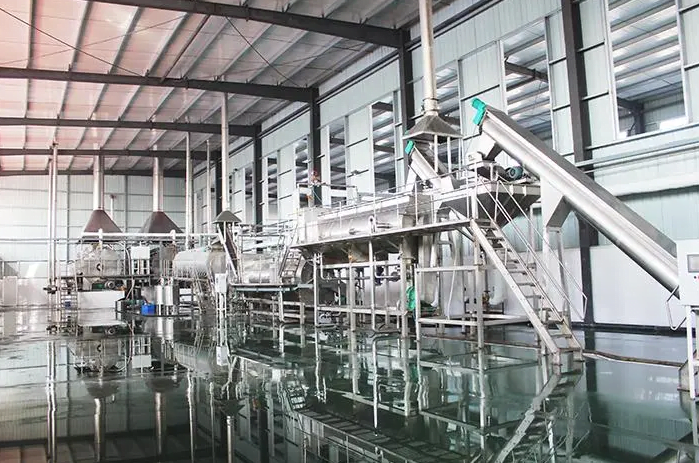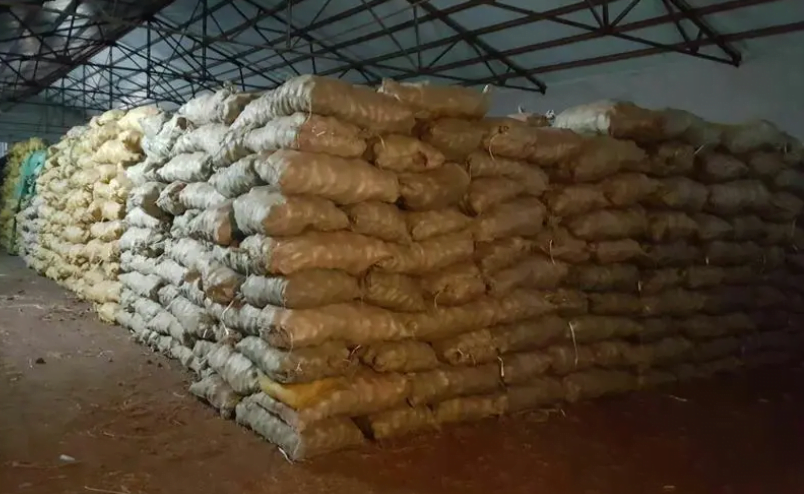Our Story
The Story and People Behind XION Potato Flakes

Every year, at the end of September, the Bashang Plateau in Zhangjiakou, Hebei becomes bustling with activity. A large number of laborers gather here to find work, and various trucks are lined up almost bumper to bumper on the roads.
Situated at an altitude of around 1500 meters, this region experiences a significant temperature difference between day and night. The fertile sandy plains here form one of China’s most important potato-growing areas. Unlike potatoes grown for vegetable purposes, those used for processing into potato flakes yield higher returns for farmers. Additionally, various potato varieties thrive well in this region.
Come October, the vast temperature difference between day and night quickly leads to frost on the ground, giving people a harvest window of less than a month.
While mechanical harvesting is highly efficient, in most cases, workers manually sort and harvest the potatoes.

This method of sorting is beneficial for the processing of potato flakes, as it not only enhances production efficiency but also maintains product quality. Moreover, sorting the potatoes directly in the field eliminates the need for future sorting, making it the most economical method currently.
Field workers manually sort potatoes that machines have unearthed, bagging those weighing about 300 grams and above separately from smaller ones. Each filled bag weighs at least 15 kilograms, and every time they fill a bag, they earn 1.5 yuan. The most skilled workers can earn up to 800 yuan a day, even though the constant bending over to sort can be strenuous on their backs.
XION potato flakes represent not only these hardworking field workers but also modern, large-scale food industrial production.
A large potato flakes production line is about 150 meters long, consisting of multiple stages of processing equipment, with almost 80% of the work being fully automated. Therefore, when you view the production through the observation channel, you rarely see many workers operating; instead, you see massive machines continuously running.

Larger than the potato production line is the temperature-controlled storage, which holds the potatoes needed for year-round production, with a capacity of 50,000 tons. This vast storage consists of multiple smaller warehouses, where managers inspect the incoming potato raw materials and arrange them into different warehouses based on their variety and quality.
The ratio of raw potatoes to finished potato flakes is about 6:1. Therefore, after accounting for annual losses, 50,000 tons of raw potatoes can produce about 8,000 tons of high-quality potato flakes. Typically, the best quality and varieties of potato flakes are sent to well-known food factories and eventually become the products you see in supermarkets, such as composite chips, mashed potatoes, biscuits, and more.
Potato flakes of lower quality are generally used as pet food or fish feed.
Speaking of this, you can rest assured that XION offers only one type of food-grade potato flakes, the same as what is provided to big companies like Pepsi in the USA and Orion in South Korea.

XION potato flakes originated from a sudden idea.
One day, we thought we could provide the best raw products not only to these large food enterprises but also to many other factories that might need high-quality potato flakes. So, we decided to give it a try.
Thus, potatoesflakes.com and XION were born, a sub-company from DinWeys Co.,LTd
That’s us. There’s no touching or dramatic story behind it, just an ordinary small highland city thousands of miles away, where some ordinary people are diligently doing these ordinary tasks.